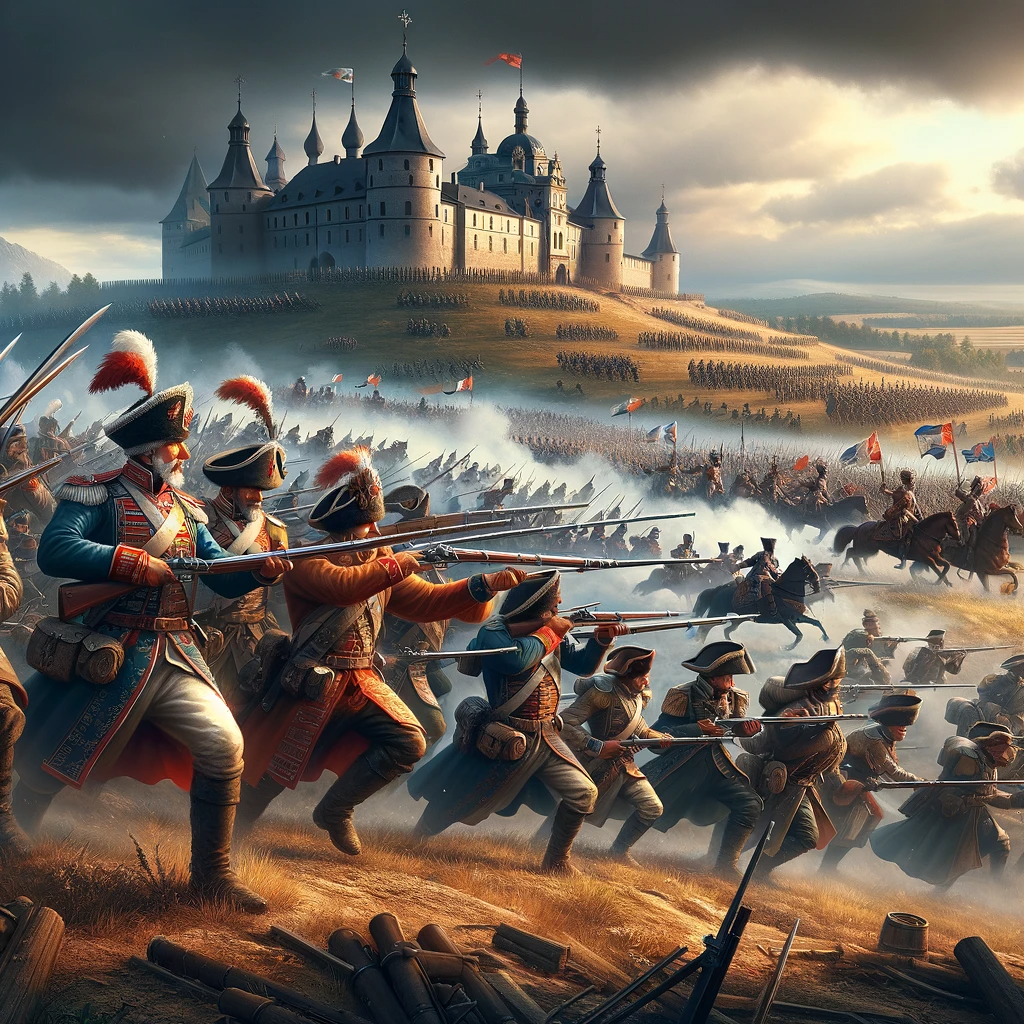Cossacks: A Tale of Strategy, Epic Battles, and the Quest for Empires
By Ivan Petrovich
In the early 2000s, as the world of PC gaming was beginning to bloom, I stumbled upon a game that would become a cornerstone of my gaming journey: “Cossacks: European Wars.” Set against the backdrop of 17th and 18th-century Europe, this real-time strategy gem took me on an epic journey of conquest, diplomacy, and warfare. Little did I know that the game would immerse me in a world of strategic brilliance, unforgettable battles, and the grandeur of building vast empires.
The Rise of the Cossacks
“Cossacks: European Wars” introduced me to a time when empires clashed, and the art of war was a way of life. The game allowed me to choose from a variety of European nations, each with its unique strengths and weaknesses. But it was the Cossacks who captured my imagination from the very beginning.
The Cossacks, a group of fiercely independent warriors from Eastern Europe, were known for their formidable cavalry and indomitable spirit. Choosing to lead these warriors into battle was the start of an unforgettable adventure. The sight of Cossack cavalry charging into the fray, sabers raised, was a sight to behold.
Resource Management and Empire Building
At the heart of “Cossacks” lay the intricate art of resource management and empire building. The game required careful allocation of resources such as food, wood, coal, iron, and gold to build armies and maintain economies. The scale of production and the need for efficient logistics struck me as particularly challenging and satisfying.
One of my most memorable moments involved orchestrating a vast logistical operation to supply my army. I had to ensure a steady flow of resources to the frontlines, construct fortifications, and manage the production of weapons and ammunition. It was a monumental task that demanded strategy and foresight.
The thrill of overseeing the construction of sprawling cities, fortresses, and barracks, and then seeing them come to life with bustling activity, was a testament to the game’s attention to detail. It was an experience that underscored the importance of efficient management in achieving victory on the battlefield.

Diplomacy and Alliances
“Cossacks” was not just about warfare; it also delved into the intricacies of diplomacy and alliances. The game allowed for interactions with other nations, from forging powerful alliances to negotiating trade agreements. These diplomatic endeavors added a layer of depth and complexity to the game.
One situation that struck me was when I found myself surrounded by powerful neighbors, each eyeing my territory with envy. Instead of resorting to an all-out war, I opted for diplomacy. Through careful negotiations, I managed to secure alliances and non-aggression pacts, creating a buffer zone of friendly nations.
The sense of satisfaction that came from navigating the intricate web of diplomacy and outmaneuvering potential threats through strategic alliances was immensely rewarding. It highlighted the importance of political savvy and diplomacy in the quest for empire-building.
Epic Battles on a Grand Scale
The hallmark of “Cossacks” was undoubtedly its epic battles, and they were nothing short of spectacular. The game allowed for massive armies, and I often found myself leading thousands of soldiers into battle. From musketeers and pikemen to cannon artillery and, of course, the iconic Cossack cavalry, the diversity of units and tactics was staggering.
One particularly memorable battle occurred on the vast plains of Eastern Europe. My Cossack army faced off against a formidable enemy coalition, consisting of multiple European nations. The sheer scale of the battle, with thousands of soldiers clashing in epic formations, left me in awe.
The battle was a symphony of chaos and strategy. Cavalry charges thundered across the battlefield, musket volleys tore through enemy lines, and cannon fire echoed through the air. Victory hinged on the coordination of different unit types and the execution of strategic maneuvers.
The game’s AI was also impressive, as it allowed for dynamic battlefield tactics and adapted to the changing flow of battle. It was not uncommon for a battle to evolve into a protracted siege, with both sides vying for control of key strategic points.
The Quest for Global Dominance
As I delved deeper into the game, the quest for global dominance became an all-consuming goal. “Cossacks” allowed for vast campaigns where I could expand my empire across an entire continent. The strategic decisions I made on the world map, such as selecting target regions and managing resources, directly impacted the outcome of my campaigns.
One memorable campaign took me on a conquest of Europe, starting as a small nation and gradually expanding my territories through diplomacy and warfare. The sense of progression, from a fledgling state to a continent-spanning empire, was a testament to the game’s strategic depth.
Another campaign led me on a quest for control of the New World, where I faced fierce resistance from native civilizations and rival European powers. It was a grueling endeavor that required not only military might but also the ability to manage remote colonies and navigate the treacherous waters of international politics.
The Grand Strategy and Replayability
What struck me most about “Cossacks” was its grand strategy and replayability. The game featured a vast array of campaigns and scenarios, each offering a unique historical backdrop and set of challenges. Whether it was commanding armies during the Napoleonic Wars or embarking on colonial adventures in the Caribbean, “Cossacks” kept me engaged for hours on end.
The game also featured a robust multiplayer mode, allowing for epic battles and strategic showdowns with friends and players from around the world. The competitive nature of multiplayer matches and the unpredictability of human opponents added a new dimension to the game’s strategic depth.
The Legacy of “Cossacks”
“Cossacks: European Wars” left an indelible mark on my gaming journey. It was more than just a game; it was a journey through history, a test of strategic brilliance, and an epic quest for empires. The memories of leading Cossack cavalry into battle, negotiating diplomatic alliances, and conquering vast territories continue to hold a special place in my heart.
In Conclusion
“Cossacks: European Wars” was a game that transcended its time, offering a grand strategy experience that remains relevant and captivating even today. Its ability to immerse players in a world of conquest, diplomacy, and epic battles was nothing short of extraordinary. The legacy of “Cossacks” lives on as a testament to the enduring appeal of grand strategy gaming, and it will forever be cherished by fans of the genre.
